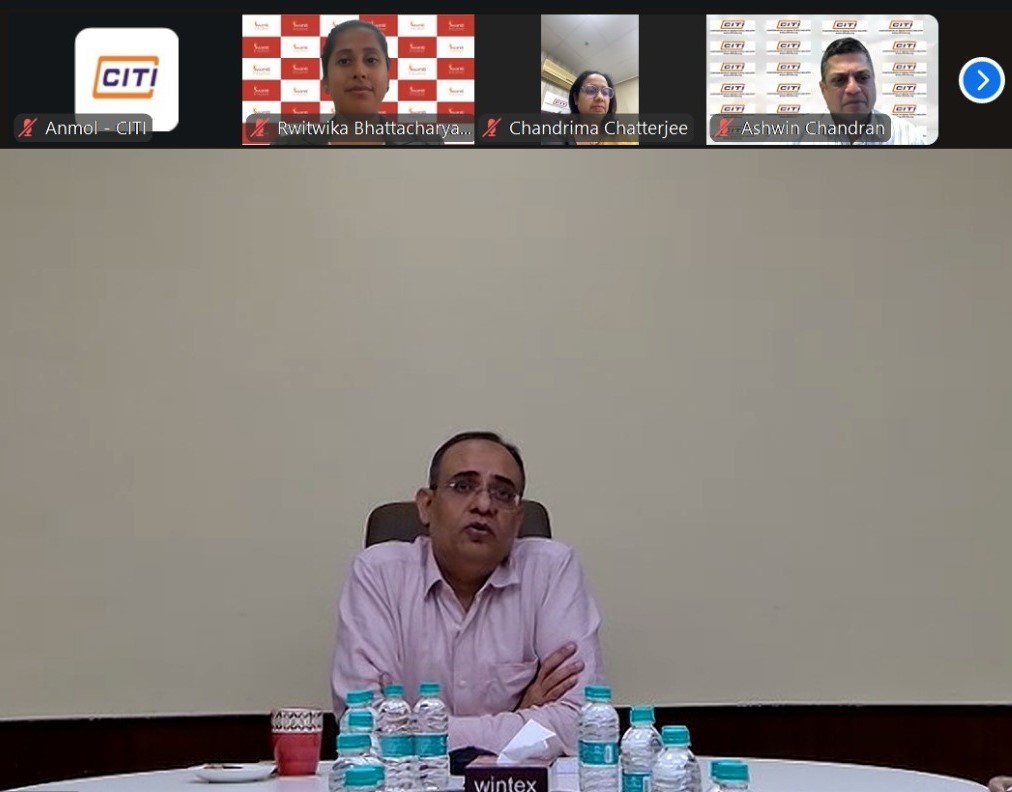 India’s textile and apparel sector must view sustainability as an opportunity that could be leveraged to make a bigger mark for itself globally, Union Textiles Ministry Additional Secretary Shri Rohit Kansal said on Thursday.
India’s textile and apparel sector must view sustainability as an opportunity that could be leveraged to make a bigger mark for itself globally, Union Textiles Ministry Additional Secretary Shri Rohit Kansal said on Thursday.
Speaking at a webinar jointly organised by the Confederation of Indian Textile Industry (CITI) and Swaniti Initiative on the “Industry Transition Readiness Index for Decarbonisation of the Textile sector” on November 13, Shri Kansal pointed out that sustainability is more than a compliance issue. It is something that textile and apparel companies should look at as a potential “strategic differentiator”, which could enhance their global competitiveness.
Shri Kansal pointed out that sustainability initiatives already being undertaken by large companies, and at textile clusters in various parts of India, such as Tiruppur, Surat, and Panipat, for example, vindicate the strong commitment of the country’s textile and apparel arena to sustainability and circularity. MSMEs make up the majority of India’s textile and apparel sector.
However, the Additional Secretary, who chairs the ESG Task Force at the Union Textiles Ministry, pointed out that it is important for India’s textile and apparel arena to further step up its act on the transition to clean energy sources, become more resource efficient, and focus more on skill development as part of decarbonization initiatives. “There can be no green transition without adequately skilled manpower to lead the transition,” he said.
Shri Kansal said the government would provide handholding support to ensure that textile and apparel MSMEs could gain access to finance more easily for reducing their dependence on fossil fuels. “No one should get left behind (in the sustainability process),” he added.
CITI Chairman Shri Ashwin Chandran said an enhanced focus on sustainability could contribute to futureproofing India’s textile and apparel sector. “The textile and apparel sector aligning with India’s climate goals is both a responsibility and an opportunity,” Shri Chandran added. India aims to achieve Net Zero status by 2070.
Shri Chandran said CITI would be working closely with industry stakeholders on the textile decarbonization index. The decarbonization index will enable companies to quickly identify specific areas where they can improve production practices, and importantly and do so in accordance with industry best practices. It would ultimately serve as a platform for peer-to-peer learning.
Swaniti CEO Ms Rwitwika Bhattacharya said India has been showing the way in the renewable energy domain.
The need to come across as a sustainable sourcing destination has assumed critical importance for India’s textile and apparel sector in view of likely more business opportunities opening following the free trade agreement (FTA) being negotiated with the European Union. The EU has always accorded tremendous importance to sustainability, which in the case of businesses extends not just to carbon emissions but also to human rights practices at workplaces and transparency in the supply chain.
India has set itself a target of creating a $350 billion textile and apparel industry by 2030, including achieving exports of $100 billion. The size of the domestic textile and apparel sector was close to $180 billion in the year ended March 2025. Textile and apparel exports from India in the financial year 2024-25 stood at nearly $38 billion.





















